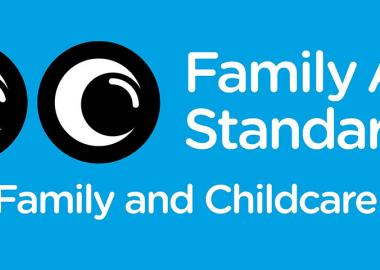Struggling to recruit younger members? In this guidance, reprinted from the Autumn 2016 issue of Highnotes, Making Music’s Youth Engagement Manager Xenia Davis has some suggestions.
The biggest barrier to young people joining music groups isn’t repertoire, or classical music being perceived as ‘stuffy’, or the age profile of the group.
Making Music’s recent research into the music-making behaviour of under-35s found time pressure to be the overwhelming barrier to young people joining music groups. In an age of economic uncertainty, when young people are leaving university saddled with debt, facing a shrinking employment market, and juggling multiple jobs in order to afford rising rents and living costs, there is a widespread feeling that 'we just don’t have the time for it.'
'We’re too busy with other things,' explains Jennie. 'Most of my peers have two jobs and/or a family'.
And yet music making in groups has been found time and again to have a positive impact on physical and mental health. In an era when young people’s stress and anxiety levels are higher than ever, it’s crucial to find ways to make music making accessible to all, especially to those with busy and stressful lifestyles.
The silver lining to this is that the phrase 'I’m too busy' is usually subjective. While it can definitely feel true to the person uttering it, we can (usually) pick our priorities. The challenge to music groups is: how can we support people who feel like they don’t have time to fit anything else into their over-packed schedules to re-prioritise?
Triggers
A key principle in community engagement is not to expect people to come to you, but to go to where people already are. This holds true when reaching out to people not actively looking to get involved in music. Workplaces, shopping centres, festivals and public transport are all game.
Renee, 29, got involved in singing after taking part in a workshop at a staff away day:
'I hadn’t sung since I was at school, and to be honest, it wasn’t really on my radar,' she explains. 'But it made me remember how much I loved it! I now sing regularly in two choirs.'
One-off projects
Project based opportunities are appealing if you are worried about having time to make a regular commitment. Chaps Choir have previously put on one-off workshops in the lead up to concerts, where they have taught one or two songs from their repertoire. Workshop attendees are then invited to join the performance for the songs they learnt. Sing Out Streatham organised a flashmob which attracted a high number of new members due to its one-off nature. A ‘project based’ opportunity can be a great way for people to dip their toes in the water in a noncommittal way, and then get hooked.
Saying it’s low commitment ...and meaning it
But won’t relaxing attendance requirements lead to a drop in standards? Not necessarily. It suits some people to attend fewer rehearsals and fit in the practice in their own time. “I work as a nurse and sometimes my shifts are really unpredictable,” explains Jess, 23, “so it’s great to know I don’t have to be there every week.”
“For lots of people starting out on careers, you become a slave to your job and can’t guarantee being able to get to a regular weekly rehearsal by 6.15pm every week” says Katie from the Bach Choir.
The key is to be clear around expectations. How will you support people who have missed a session to not feel guilty about holding other people back? Is there an expectation to catch up before the next session? Be clear so people know where they stand and no one is projecting frustration on people who have missed a week.
Get them hooked
Convenience isn’t the only appeal. A key reason for dropping out of groups was 'it stopped being fun'. 'Creating an atmosphere beyond playing is crucial', says Polly from the Stowmarket Concert Band, but good social dynamics don’t just happen by accident.
Bristol Choral Society uses a buddy system to welcome and integrate new young members. You could have a revolving welcoming team to make sure new people aren’t left on their own, and a break so people can chat. Social events, weekly trips to the pub, Christmas dinners, and picnics and jamming in the park can all be worth a go – but make sure these don’t generate an ‘in crowd’ clique. Performances can also play an important role in creating a sense of purpose and something to work towards.
Engaging younger people in music groups has no simple answer; it’s a long-term project requiring effort and buy-in from conductors and committees alike. The good news to be gleaned from our research so far is that there are practical steps you and your group can take to help you do just that, and Making Music is looking at how it can best support you on the journey.
Read Xenia’s full report on youth engagement.
We hope you find this Making Music resource useful. If you have any comments or suggestions about the guidance please contact us. Whilst every effort is made to ensure that the content of this guidance is accurate and up to date, Making Music do not warrant, nor accept any liability or responsibility for the completeness or accuracy of the content, or for any loss which may arise from reliance on the information contained in it.











